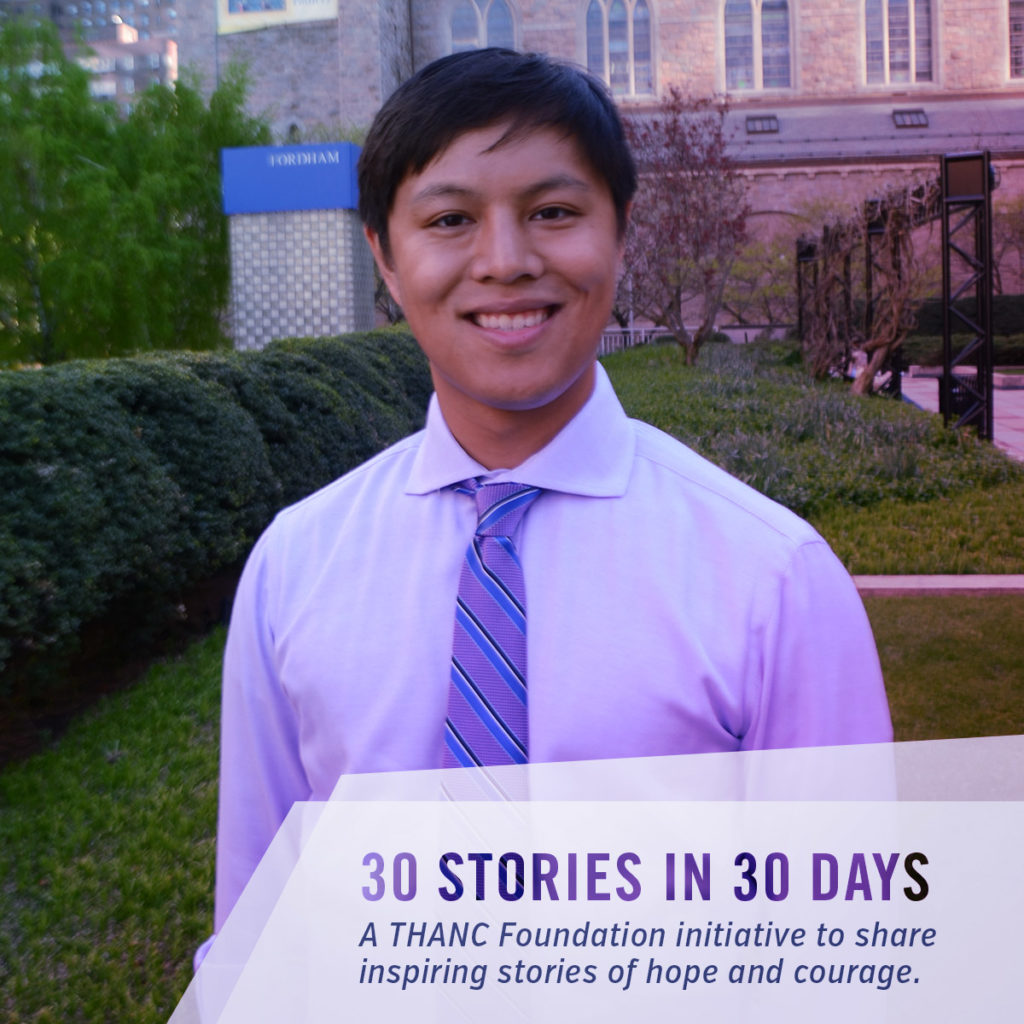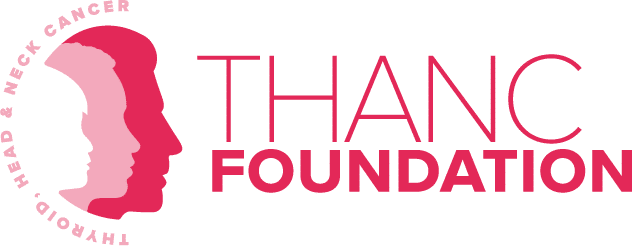
30 Stories in 30 Days
September is Thyroid Cancer Awareness Month. For the next 4 weeks, we will post stories written by cancer survivors, caregivers and friends for our 30 Stories in 30 Days campaign. We hope their perspectives and insight will help others along their journey.
To some, my career path may seem jumbled or incongruous. A current doctoral student studying Theology and Religion, I previously spent four years working as the patient advocate for the Institute for Head and Neck and Thyroid Cancer at Mount Sinai, in close collaboration with the Thyroid Head and Neck Cancer Foundation (THANC). While the fields of theology and medicine may seem to be almost opposite, experience has showed me that they are actually quite intertwined. My time at THANC exposed me to these many connections and revolutionized my worldview. For this reason, I believe that stumbling onto my position at THANC was not pure chance, but true providence.
As patient advocate, I was the primary point of contact for patients and their families. I would reach out regularly to check in on families and assist them throughout their journey and saw myself as an extension of the care that they were receiving from our team of physicians. For me, this was truly a humbling role; I felt like an outsider entering into the lives of families during a very vulnerable and traumatic time. I therefore made it my goal to assist these families on their road to healing in any way that I could. Through these interactions (and through my own mistakes), I learned the importance of the little things: I saw how even the smallest acts of kindness could make an incredible difference in the experiences of others. This position also altered my perspective on mortality. It made me aware of the need to make every moment count, to be grateful, and to be decisive about the things that matter. These experiences have forever changed the way that I conduct myself professionally, personally, and interpersonally.
While working at THANC, one of my family members was diagnosed with a recurrence of thyroid cancer. A terrible and stressful event for my family, the timing was actually quite fortuitous, as I was able to introduce my family to the THANC team and ensure that they received the absolute best care. In this way, I was placed on the receiving end of medical care. My family and I were travelers on the path to healing, and I saw that there is much wisdom that can be gained from this journey.
All of these experiences led me to reconsider the origins of what we call “care”. To some, caring for others is a manifestation of a divine reality, yet I also believe that our desire to care for others comes from the need to affirm meaning in life, to find both a self and a communal transcendence, and, ultimately, to accomplish healing. In this way, doctors can serve as a perfect example of the way to treat and care for others. At THANC, I observed doctors treating the bodies of their patients as if they were their own. I believe that anyone who cares about another person should act in just this way. Additionally, doctors leave no stone unturned in the treatment of their patients. They collaborate with countless other specialists and perform exams, scans, biopsies, and much more, all to provide the highest standard of care. And they do so in partnership with their patients, rejoicing with them over every recovery and grieving alongside them in the face of setbacks. Given my field of study, I see how this example is particularly applicable to religious and theological communities, but in truth, we could all benefit from employing this medical method: compassionately listening to one another and collaborating in order to do greater justice to human needs.
If I were to give a piece of advice to patients and their families undergoing cancer treatment, it would be to envision medicine as a collaboration of hands. Once you establish yourself with a good doctor, you should trust in the hands of the physicians going above and beyond to provide you with the best treatment, but also don’t underestimate the power of your own hands to take ownership over your care. Be bold in ensuring that you get the care that you need. I believe that the ‘hands of God’ are found in this collaboration of many hands: the hands of the doctors providing medical care working side by side with the hands of the patients and families advocating for their needs. The collaboration between all of these forces has the power to bring about the miraculous process of healing. That is what I was blessed to witness on a daily basis. That, to me, is an experience of transcendence.


